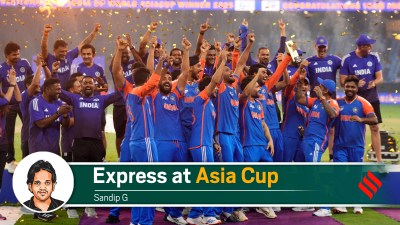It’s over to neutral venues, unbiased pitches
West Zone’s representative of the BCCI pitches committee, Dhiraj Parsana has a broad...

West Zone’s representative of the BCCI pitches committee, Dhiraj Parsana has a broad smile on his face on the eve of three vital Ranji Trophy games being played at neutral venues. “This means an end to dicey pitch preparation and the unfair home advantage which has been the bane of domestic cricket for quite some time,” he says. He had just labelled the CCI pitch as ‘sporting’. It is to host the Plate final between Gujarat and Railways.
While reports from Indore and Vadodara — venue for two Elite division semis — also suggest that a green track awaits the teams, the final leg of the Ranji’s longer version promises even contests.
Parsana, who has been a pitch preparation official for over two decades now, says: “I think it will be fair game. The pacers will get bounce early on and later the spinners too can expect to get assistance. Since these are important games to select the national team, no one should get undue advantage.”
But when the working committee decided on the plate and elite games being played on neutral venues from the semi-final stage, there was resistance. BCCI Chief Administrative Officer Ratnakar Shetty says: “Initially, there was some opposition since there were members who contended that in case such important games were played at home they will get a good number of local supporters for at least one team.”
Shetty said they were eventually convinced when told that “semi-final and final would anyway draw a decent crowd, besides with the neutral venues being at a major centre there will have better facilities and the sporting conditions will make it a fair contest.”
Consider the Elite division semi-final between Delhi and Baroda at Indore. Delhi are minus their two main pacers Ishant Sharma and Pradeep Sangwan, and Baroda too is pace depleted without Irfan Pathan. If the neutral venue policy had not come into force this year, chances are this important game would have certainly be played on an overtly spin-friendly pitch. But at Indore, it is a green track.





- 01
- 02
- 03
- 04
- 05


























